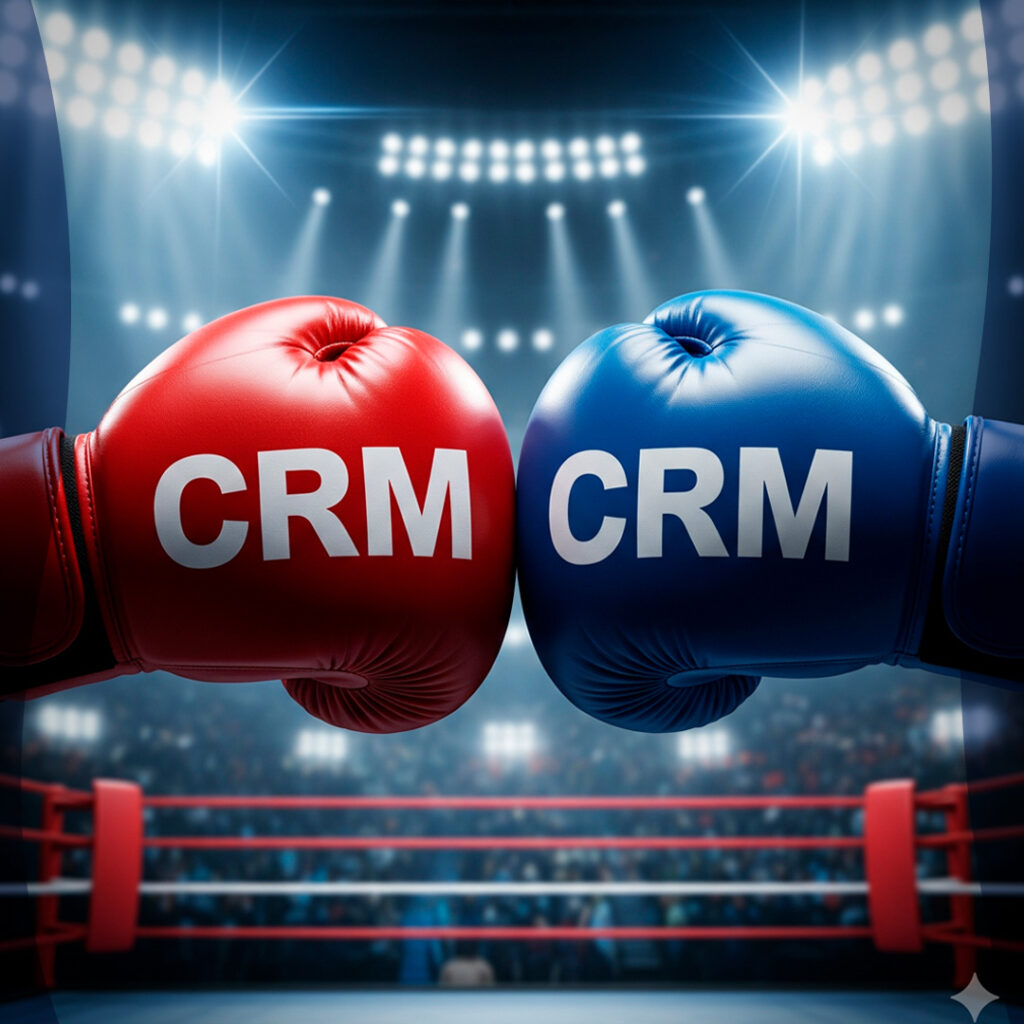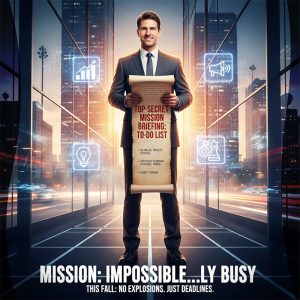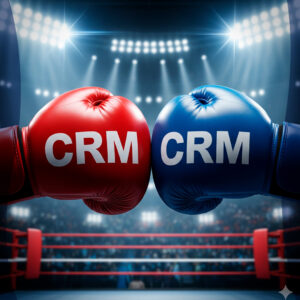
December Business Playbook: Retain Clients & Boost Revenue
Prepare Your Business for Q1 2026 December is not just
By Jean-Charles Spanelis – September 7, 2025

Sales prospecting is often described as a quest: finding the right clients, at the right time, with the right message. To meet this challenge, one weapon has become indispensable in the modern business arsenal: the CRM. But behind this acronym lies a multitude of tools, each promising miracles. Salesforce, HubSpot, Pipedrive, Zoho, Monday… the list looks more like a superhero movie cast than a simple software directory. So, which one truly deserves the crown?
Before diving into this “battle,” let’s establish one simple truth: a CRM is above all a lever of productivity and sales efficiency. Properly used, it transforms a messy collection of scattered contacts into a structured, fluid, and performance-oriented machine. As explained in our article on the advantages of a CRM for a company, it is an essential ally for anyone looking to structure and accelerate prospecting.
Reducing a CRM to a glorified address book would be like saying a car is nothing more than a seat on four wheels. Technically true, but it misses the point.
A modern CRM offers:
Above all, it’s a compass that guides the salesperson through an increasingly complex environment. Without it, even the best salespeople risk getting lost.
Let’s talk names. Who are the contenders on the CRM battlefield?
So, who wins? Spoiler: no one. The right CRM isn’t universal. The winner is the one that best fits your context, your teams, and your goals.
Investing in a CRM only makes sense if you know what to do with it. Many companies fall into the trap of thinking: “We have the tool, so we have the solution.” Wrong.
The real difference comes from how the CRM is integrated into the sales strategy. As our article on evaluating the customer relationship beyond CRM explains, a CRM should not be viewed as an end in itself. It’s a means to improve the quality of interactions with prospects and build long-term trust.
Another common misconception is believing the CRM can run itself. Without sales discipline, it is underused, filled with incomplete data, and reduced to a “black box.”
The truth is simple: a CRM is only as strong as the sales discipline behind it. That means implementing clear rituals: data entry, lead follow-ups, and scheduled calls.
Here again, structuring matters. As we explained in our article on how to set up a prospecting schedule, tools don’t replace organization. They enhance it.
To stand out, a CRM needs to excel in certain areas. Here are the “superpowers” that really make a difference:
Instead of asking “Which CRM is the best?”, ask yourself:
The ideal CRM matches your sales maturity. Think of it this way: you don’t give a Formula 1 car to someone who just got their license.
Finally, let’s not forget that a CRM, however powerful, will never replace human factors. Sales coaching remains crucial to get the most out of the tool. Coaching helps transform a technical system into a strategic driver.
Externalizing some sales functions can also be a game-changer for companies looking to accelerate results and structure their practices.
In the end, the CRM battle has no single champion. The true winner is the CRM that integrates smoothly into your sales strategy, is adopted by your teams, and becomes a natural extension of your prospecting.
Don’t search for the “perfect” CRM. Look for the CRM that makes you perfect at prospecting.
📞 Need help choosing, setting up, or optimizing your CRM? Contact us today.

Prepare Your Business for Q1 2026 December is not just

Between strategy, leadership, and delegation, learn how CEOs can transform their overwhelming to-do lists into powerful instruments of business clarity.

Understanding your website visitors means unlocking insights to sharpen your sales strategy, personalize outreach, and drive measurable results.

Lead generation is no longer about quantity but quality. In 2025, success comes from targeting the right prospects and guiding them with trust and care.

There is no absolute winner in the CRM battle. The right CRM is the one that matches your goals, teams and sales maturity.

Leadership can be isolating. Executive coaching provides support, perspective, and tools to help leaders make confident and effective decisions.